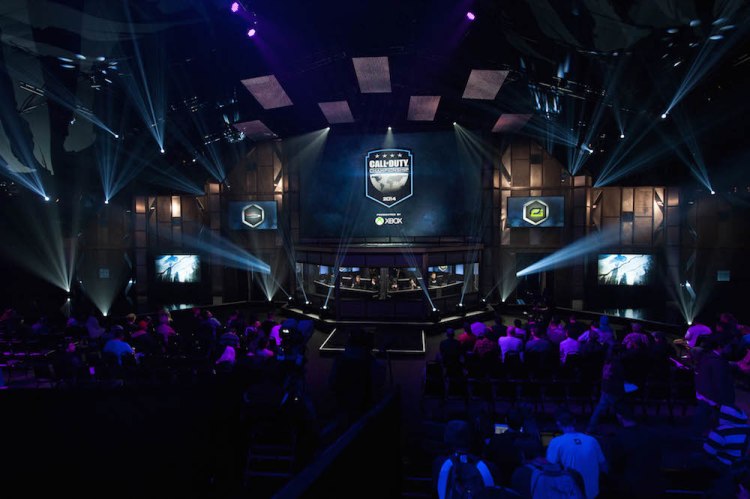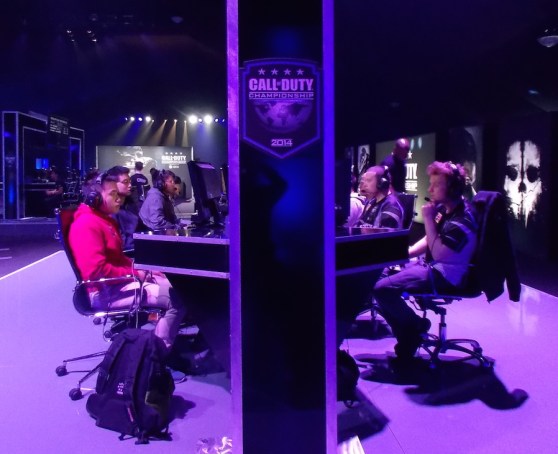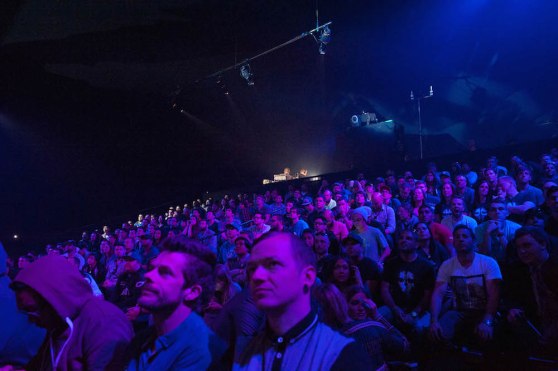“[E-sports in South Africa] is getting a lot bigger very quickly,” Bechus said. “There are a lot of teams. [If you include] all ages, there are probably about 40 or 50 teams. There are quite a lot of LANs popping up everywhere, mainly in Cape Town, with some decent cash prizes.”
The Xbox One also isn’t out in South Africa, so one of the first things Bechus did when he arrived was head to the player’s lounge so he could familiarize himself with the Xbox One controller, which is much different than its predecessor. While it didn’t take long for him to get used to it, he said he’s still “a little better” on the Xbox 360.
Up in Canada, Vexx Revenge were a bit more prepared. They practiced on Xbox One for about a month, playing against Wild Gaming (the other Canadian team who traveled to the states) and most of the American teams who were heading to the championship.
“I’d say it all depends on where you live,” said Shane “Slumber” Burnham about the popularity of e-sports in Canada. “In the Toronto area, it’s really popular. We have a lot of friends there that are into e-sports. Toronto is really good, like Ontario. And Quebec is really into e-sports, too. I’m not too sure about the West Coast, but where we live, it’s pretty big.”
Playing as a hobby, not as a job
Ryan “Fwiz” Wyatt, a well-known MLG commentator, recently told Official Xbox Magazine that if you can’t dedicate eight hours of your day to Call of Duty, “your team will not be a top-16 team.”
But the reality is that some players just can’t afford to spend that many hours on the game. They do what they can, even if that means putting aside the controller to study pro gamers’ livestreams and recordings of past matches to pick up on opponents’ tendencies.
“[In Singapore] there’s no such thing as gaming houses,” Teoh said. “There’s no such thing as playing seven or eight hours a day. Funny fact, we’re talking about Call of Duty, I’m actually serving [in] the army — all males in Singapore who are 18 years and older are required to serve two years. I had to take a leave to come here.”
Since the Call of Duty e-sports scene fluctuates wildly from one country to the next, it’s no surprise that the players I spoke with simply can’t survive through competition alone. For example, half of NSP’s four-man team go to school while the other half have day-time jobs. They can only play two hours a day.
Bechus, who’s a first year student at a university in Cape Town and mostly plays on the weekends, admitted that it’s difficult to compete against the big teams when you don’t have much time to get ready.
“When they get that much time on their hands — it’s pretty much what they do for a living — there’s just more motivation for them to study the game at a higher level and take more time to study other teams,” he said.
Vexx Revenge spend a lot of their nights and weekends practicing, too, as Burnham works 40 hours a week and the rest of his teammates are still in school. And despite the presence of the ACL in Australia, local tournaments don’t generate enough money for teams like T1 Dotters to make a living.
“Immunity and Avant Garde are really the only competition in Australia in the 18 and over [category],” said Chimura. “So us and them scrim all the time. We share strategies. Because all of us — we go to school, [universities], have apprenticeships, things like that. Whereas for the American teams, it’s basically their job. They stream all day. They play all day. They have gaming houses. We’re not as privileged as they are.”
These guys were acutely aware of the disadvantages they faced when going up against the big teams. But surprisingly, no one blamed their losses or disappointments on their situations. They just did the best they could with the time they had.



